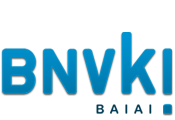Reasoning with Contexts in Description Logics
Ph.D. thesis abstract
Szymon Klarman
Promotor: Prof.dr. F.A.H. van Harmelen
Co-promotor: Dr. K.S. Schlobach
Date of defense: February 27, 2013
This thesis offers novel insights into the question of how to represent and reason with contexts within the paradigm of Description Logic-based knowledge representation. We propose a generic logic-based framework, compatible with Description Logics, for modeling, studying and addressing a range of problems related to contextuality of knowledge, particularly in the Semantic Web environment. Our approach is inspired by John McCarthy’s theory of formalizing contexts in AI, in which contexts are treated as formal objects over which one can quantify and express first-order properties. Our basic conceptual contribution is a reinterpretation of this theory on the grounds of two-dimensional possible world semantics, where one dimension represents a usual object domain and the other a domain of contexts. The notion of context is thus identified with that of Kripkean possible world. Further, the framework accounts for two (possibly) interacting languages – the object and the context language – for explicit modeling of their respective domains. We argue that this general setup brings a unifying and highly explicatory perspective on a number of diverse problems reflecting the studied phenomenon. In particular, we provide the following contributions to support our claim:
- We define a novel family of two-dimensional, two-sorted DLs of context, similar to product-like combinations of DLs with modal logics. We present results regarding their expressiveness, relationships to other known formalisms, and computational complexity of the basic decision problems, ranging from ExpTime- to 2ExpTime-completeness.
- We apply the framework to the problem of ontology integration, and introduce a novel task of metaknowledge-driven selection and querying of data. We demonstrate the ease of the tasks under the proposed approach and report on a case study of aligning different versions of Wordnet ontologies.
- We apply the framework to the problem of formal verification of data provenance records, and propose a novel provenance specification logic, based on a combination of Propositional Dynamic Logic with ontology query languages. Our proposal is validated against the test queries of The First Provenance Challenge, and supported with an analysis of its computational properties.
- We apply the framework to the problem of reasoning with temporal data, and define a generic mechanism for constructing corresponding temporal query languages, based on combinations of linear temporal logics with ontology query languages. We elaborate on the practicality of our approach by enriching the query language and data annotations with additional temporal terms, and by proposing special restrictions that render temporal querying computationally cheap and relatively straightforward to implement.

